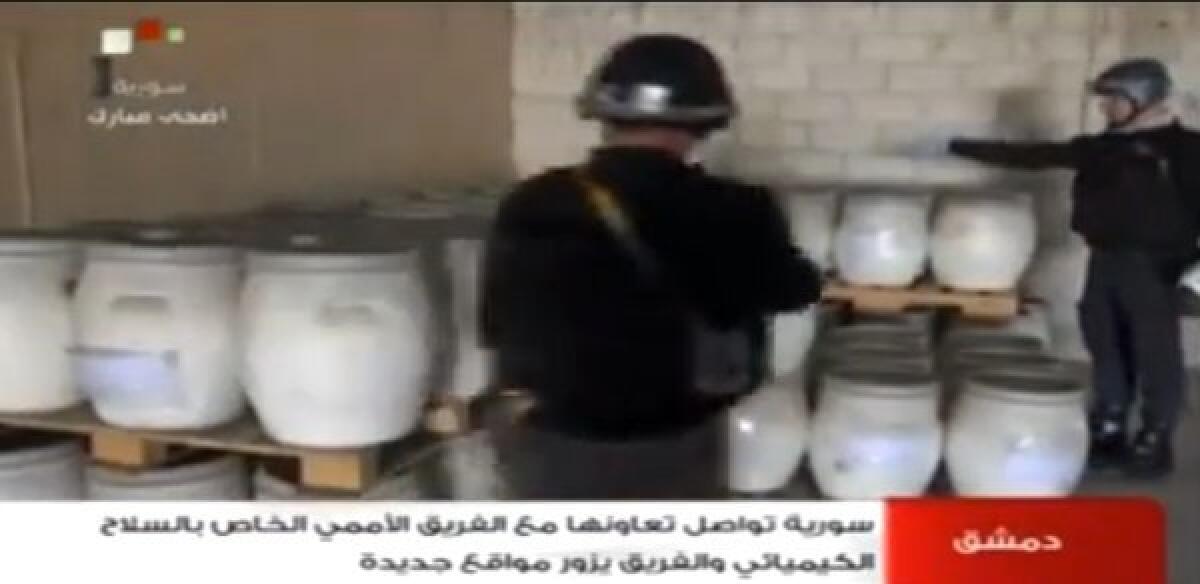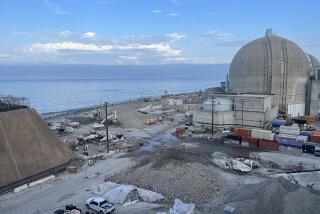Syria sites for making chemical weapons ‘inoperable,’ inspectors say

- Share via
BEIRUT — Syria’s chemical weapons production facilities have been rendered “inoperable” ahead of a Nov. 1 deadline for their destruction, the international body overseeing the process said on Thursday.
In a statement from its offices in the Hague, the Organization for the Prohibition of Chemical Weapons, or OPCW, said Syria had concluded the “functional destruction of critical equipment for all of its declared chemical weapons production facilities and mixing/filling plants.” That means that Syria no longer has the technical ability to create new chemical arms.
The finding confirms that Syria has met a major milestone in the elaborate disarmament process only one month after international inspectors first arrived in the country to begin the complex and politically sensitive operation.
A joint mission by the OPCW and the United Nations aims to eliminate all of Syria’s chemical weapons stockpiles by mid-2014. Experts have called the ambitious plan unprecedented since it is being done at an accelerated pace and as a civil war rages inside Syria. The destruction is carried out by Syrian authorities under international supervision.
The next milestone for the international effort is Nov. 15. That’s when the joint OPCW-U.N. mission must approve a detailed plan to eliminate Syria’s existing chemical weapons stockpiles. To date the destruction has focused on items such as mixing and filling facilities and unarmed munitions. The elimination of more than 1,000 tons of precursor chemicals and agents is a more complex process.
International personnel have inspected 21 of the 23 chemical sites declared by Syria, the OPCW said. The two remaining sites were not visited “due to safety and security concerns,” the OPCW said. But Syria says the two sites in question had been abandoned and that pertinent materials and equipment had been moved to other facilities that have since been inspected, according to the OPCW statement.
International personnel have praised the Syrian government for its cooperation in the disarmament plan.
The disarmament process is the result of a U.S.-Russian accord that averted threatened U.S. airstrikes on Syria in retaliation for its alleged use of poison gas on Aug. 21 against anti-government rebels. Syrian President Bashar Assad denied that his forces used the weapons, blaming the incident on opposition forces. But Syria agreed to the internationally supervised destruction of the nation’s chemical arsenal.
ALSO:
Israel plans massive settlement push
Israeli soldiers fatally shoot Palestinian in West Bank
‘The end of the British breakfast as we know it’ -- Horrors!
Twitter: @mcdneville
More to Read
Sign up for Essential California
The most important California stories and recommendations in your inbox every morning.
You may occasionally receive promotional content from the Los Angeles Times.










